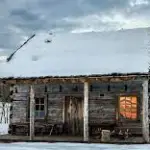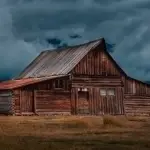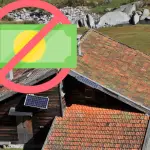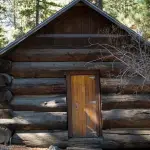
How to Move Off-Grid? Everyone knows that the electricity grid is struggling. In today’s world, it’s nearly impossible to get a consistent supply of electricity.
Why? Because we live in an age of smart devices, where anything from your light bulbs to your coffee maker requires electrical power. At the same time, living off the grid has never been easier.
Not only have more and more people started considering it as an option for their homes and businesses, but also new technologies are popping up every day that make it even easier than before to move off the grid.
It doesn’t matter if you’re just starting to think about it or if you’ve been looking into ways for a while now — there are solutions for everyone.
Costs
Moving off the grid can be expensive. Depending on the size of the parcel and the type of dwelling you build, the initial setup costs can be as much as $20,000 to $100,000. Other expenses include utilities and other amenities.
You can cut costs by living a spartan lifestyle or adding modern conveniences. Either way, moving off the grid is a worthwhile choice for anyone who wants to prepare for emergencies.
Installing renewable energy electric systems is becoming more affordable and accessible. The costs of installing a solar or wind energy system can range from $18,000 to more than $30,000.
Installing these systems also requires some labor and materials, and they may require annual maintenance and upkeep. While the initial cost may seem steep, it will likely pay for itself in a few years.
Legalities
There are many advantages to living off the grid, but you must consider the legalities of doing so. Firstly, you need to be aware of any restrictions imposed by your local government. In some states, disconnecting from the electric grid is a criminal offense.
In these cases, it would be best to seek out other options before making a permanent decision to move off the grid.
If you live in Nevada, for instance, you may not be concerned with the legalities of moving off the grid, as the state has relatively lax laws. The good news is that you can find cheap land in remote sections of the state. In addition, there are many natural resources available to you.
Although the growing season is short in Texas, it is long in most other parts of the state. Moreover, there are ample supplies of water and building materials.
Preparation
Moving off-grid can be a great way to reconnect with nature and live free. It’s also a way to give back to the world and build a community.
Here are some tips to prepare for this transition. Choosing the right living arrangement is a crucial element of success. You can choose an owner-built home, RV, tiny house, yurt, cob house, or natural building.
Regardless of where you live, you’ll need clothing that will keep you warm during all four seasons. Even in the heat and humidity of a desert, you may need to layer up.
Jeans are a great option since they can be dressed up or down depending on the weather. The clothing that you purchase should be appropriate for each season, including warm coats, warm sweaters, long pants, and boots. You’ll also need gloves and scarves.
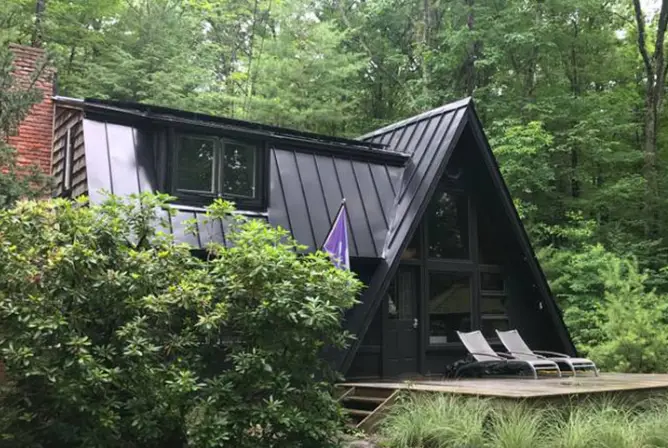
Land
Before deciding to move off-grid, there are some things you need to know. First of all, you should ensure that you’re living in a location where there’s access to clean, potable water.
This means that your land should have a well or access to a natural spring.
Next, you need to decide on your budget. While moving off-grid can be expensive, you’ll need to save money and invest it carefully. You may have to sell some of your belongings to make some extra money.
You can also start a side hustle to supplement your income. Whatever you do, make sure you stick to your budget. In fact, it’s important to triple your budget to cover inflation.
Once you’ve determined your budget, you can start saving for your off-grid lifestyle. Whether you choose to buy a tiny cabin in the woods or build a permanent home, you’ll need to make sure you’re well-stocked with food, seeds, and water.
If you’re planning to live off the grid, it’s also a good idea to make sure you’ll have a way to work. You might consider setting up a small business to supplement your income and live off the grid.
Energy options
Going off the grid can be an attractive option for many people, especially those who want more independence and freedom.
This means generating your own power, collecting water, and even growing your own food. While this is not right for everyone, it is becoming increasingly popular for those who want to reduce their dependence on fossil fuels.
Some people choose to go partially off the grid, while others choose to completely live off the grid.
One option is wind turbines, which are a great way to generate electricity from the wind. However, they are expensive and may require a large space. Another option is to generate electricity from running water on your property.
While this option can be more expensive, it can be effective if you have running water and a hilly property.
Conclusion
The benefits of moving off the electric grid include a smaller footprint, no ongoing costs for power, no ongoing costs for maintenance, and still having access to the internet when you need it most.
The benefits of moving off the grid include a smaller footprint, no ongoing costs for power, no ongoing costs for maintenance, and still having access to the internet when you need it most. Before you start your off-grid journey, you should determine what your goals are.
It’s not a case of choosing one goal over the other. It’s about finding a path that aligns with your lifestyle, budget, and goals. You might choose to live in a remote area and have no access to electricity or phone service, or you might choose to take the opposite approach and live somewhere with a booming economy and ample access to the electrical grid.
You might choose to move to an area that has lots of trees and solar panels, or you might choose to go off the grid to a barren desert. What you choose is up to you.
Once you’ve settled on where you’re moving to, you need to decide what type of off-grid home you’ll build and how much time you’ll spend building it.
Thanks for stopping by serconline.
Useful links:
https://serconline.org/knowledge-base/
https://serconline.org/product-reviews/
https://serconline.org/about-us/
https://serconline.org/contact-us/

